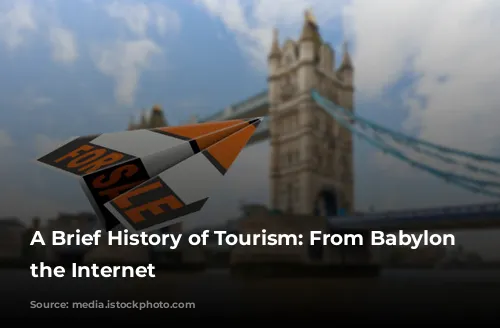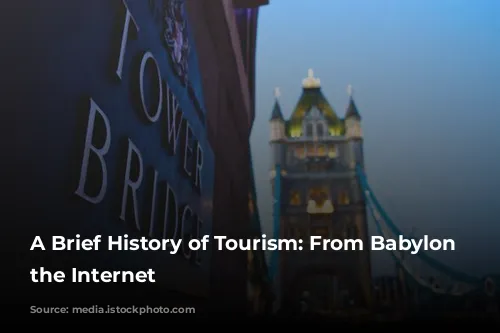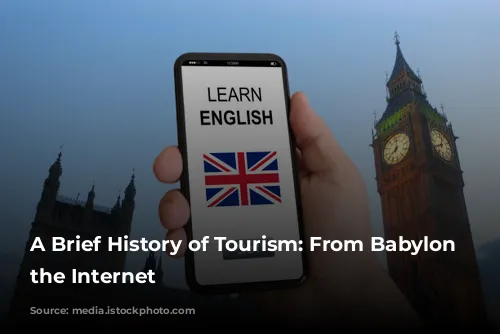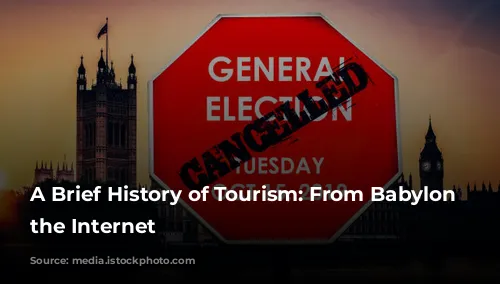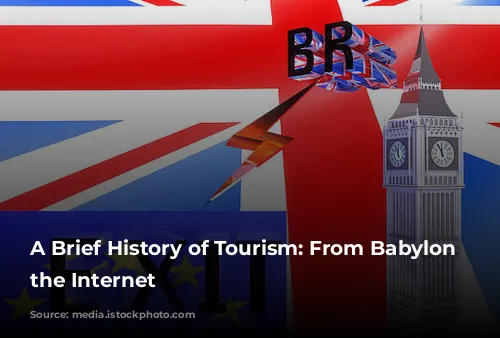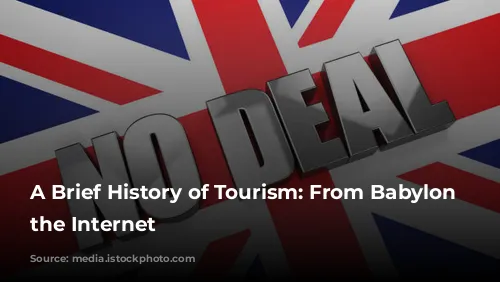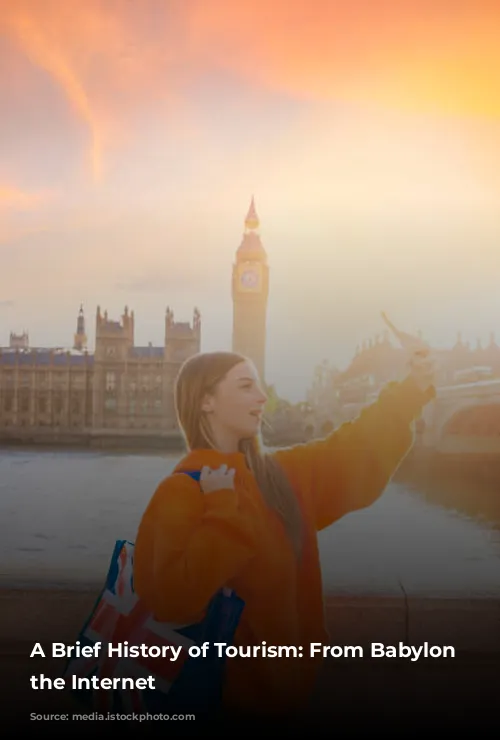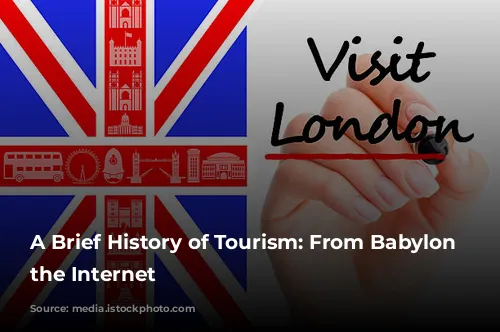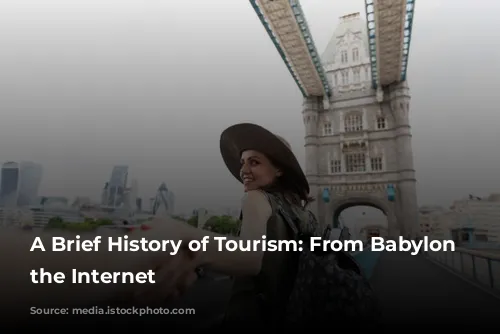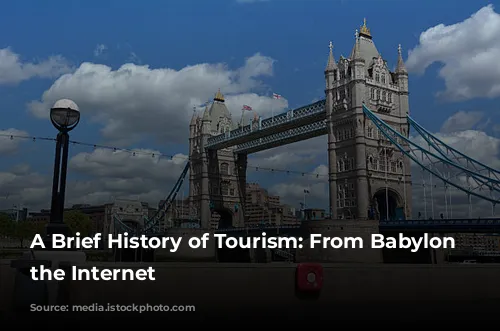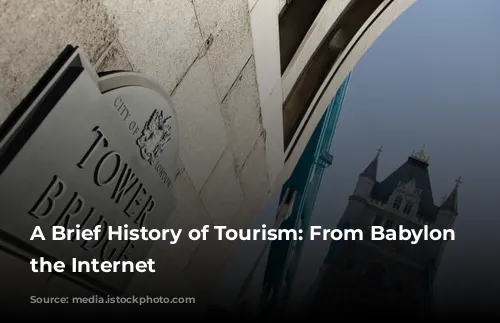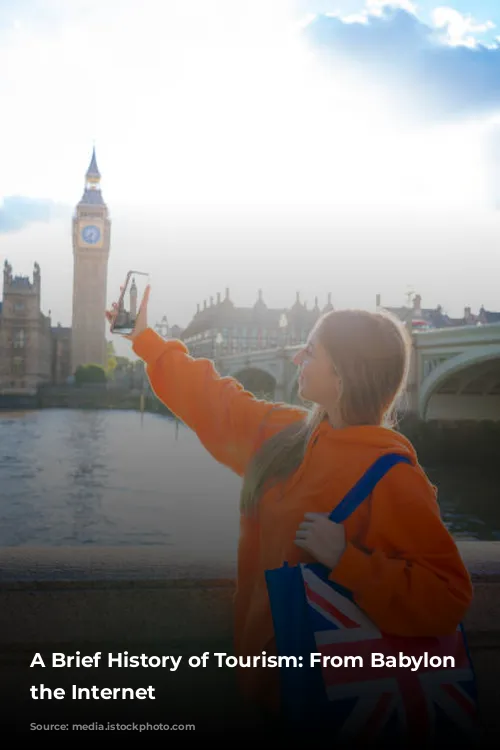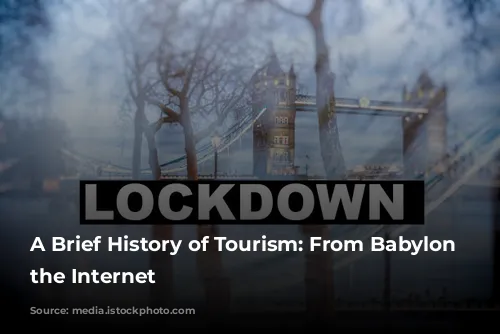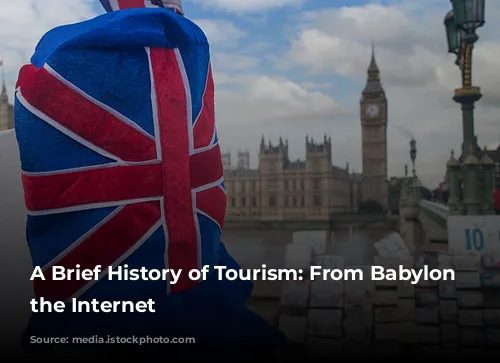Have you ever wondered how tourism evolved? It’s a fascinating journey from ancient pilgrimages to the ease of booking a London weekend hotel deal with a few clicks. We’re diving deep into history to uncover the roots of travel and how it shaped the world we know today.
Ancient Roots of Travel
The desire to explore and experience new places is as old as time. We can trace the beginnings of tourism back to ancient civilizations. Thousands of years ago, people traveled to religious festivals, seeking spiritual experiences and marveling at magnificent structures. The famous Hanging Gardens of Babylon attracted visitors from across the region, showcasing the wonders of the ancient world. Even then, enterprising individuals took advantage of this influx, offering food, souvenirs, and even “services” to visitors. It seems that the concept of the souvenir shop and the tourist trap isn’t a modern invention!
The Rise of Leisure Travel
The Greeks embraced the idea of leisure travel, embarking on journeys to sacred sites and seeking healing at temples dedicated to gods of health. In the Mediterranean, trade thrived, leading to a mix of merchants and visitors drawn to the region for business, religious reasons, and cultural exploration. This marked a shift from solely religious travel to a more diverse range of motivations.
The Dawn of Travel Guides and “Jet-Setting”
As early as the 4th century BC, guidebooks were used to navigate places like Athens, Sparta, and Troy, highlighting the destinations and their unique features. Pausanias, often considered the first travel blogger, penned a detailed account of Greece, offering insights and evaluations of different locations. This marks the beginning of a formalized approach to travel and the desire to share knowledge and experiences with others.
The wealthy Romans built lavish second homes near Rome, escaping the city’s hustle and bustle. This trend continued with intellectuals, academics, and retirees heading to Naples for its cultural offerings. The fashionable elite flocked to Cumae and Baiae, where night owls and revelers found their haven. The emergence of these distinct travel preferences foreshadows the diverse motivations and social dynamics that drive tourism today.
The Middle Ages: Perils and Pilgrimages
The Middle Ages presented significant challenges to travelers. The Knights Templar provided protection to pilgrims venturing to the Holy Land, highlighting the inherent dangers of long-distance journeys. Traders traversed the perilous Silk Road, facing threats of robbery, further emphasizing the bravery and resourcefulness of early travelers.
This era also saw the rise of exploration, with adventurers like Marco Polo, Magellan, Cook, Vasco da Gama, Abel Tasman, and Christopher Columbus venturing into uncharted territories, often never to return. Their journeys laid the groundwork for modern exploration and travel, although the concept of leisure travel as we know it was yet to fully materialize.
The Renaissance and the Grand Tour
The Renaissance marked a turning point for travel. Young men seeking positions in Queen Elizabeth’s court were encouraged to embark on the Grand Tour, a journey through Europe that fostered education, cultural understanding, and exposure to different customs and languages. This period saw a greater emphasis on personal development and cultural enrichment through travel.
The Grand Tour provided young men with a taste of freedom and European culture, visiting vibrant cities like Venice, Paris, and Florence. However, the Napoleonic Wars brought a halt to this practice for three decades, highlighting the impact of political events on global travel.
The Rise of Spas and “Taking the Cure”
The 18th century saw the rise of mineral spas, and “taking the cure” became a status symbol, showcasing health consciousness and a desire for rejuvenation. As fishing villages blossomed, coastal spas gained popularity, attracting visitors seeking respite and social interaction. This period marks the evolution of travel beyond purely educational or religious purposes, incorporating health and wellness as a primary motivator.
The Industrial Revolution and the Birth of Mass Tourism
The Industrial Revolution ushered in a new era of mass tourism. The movement of people from rural areas to cities created a demand for escapes to the coast and countryside. The development of railroads facilitated this shift, offering a means to escape the congestion and pollution of urban centers.
Train companies recognized the potential of leisure travel and constructed impressive railway stations like St. Pancras Hotel, offering weekend hotel deals and enticing travelers with luxurious accommodations. These developments demonstrate the evolution of transportation and the emergence of the modern travel industry.
Enterprising Individuals and the Birth of Package Tours
Entrepreneurs like Thomas Cook seized the opportunity, pioneering package tours that included train tickets, hotel bookings, and planned itineraries. The growing popularity of photography fueled the demand for guidebooks, providing travelers with information and inspiration for their journeys.
London’s Rise as a Global City
London, with its rich history and cultural offerings, became a major draw for tourists. Events like the Great Exhibition at Crystal Palace in 1851 solidified London’s position as a global destination. Subsequent exhibitions, showcasing the diverse cultures and achievements of the world, further cemented London’s reputation as a dynamic and welcoming city.
The Impact of War and Technological Advancements
World War II had a devastating impact, but it also ushered in a new era of travel. The post-war boom led to increased disposable income, and the deregulation of air travel allowed for affordable and accessible air travel for the masses. The introduction of the Boeing 747 revolutionized air travel, making it faster and more comfortable. This period saw a significant shift towards international travel, with more people exploring distant corners of the world.
The Rise of Affordable Travel and the Internet Era
The proliferation of free guidebooks targeting various demographics, combined with the development of package tours, made affordable travel accessible to a wider audience. The rise of nightclubs like Club Tahiti, Campari Club, and Club de la Cote d’Azur, catered to a diverse crowd and fueled the desire for exciting and affordable travel experiences.
The arrival of the internet transformed the travel industry. With a simple online search for “London weekend hotel deals”, travelers can instantly find and book accommodations, explore various options, and compare prices. This ease of access has democratized travel, making it easier and more affordable than ever before.
The Enduring Appeal of Travel
Today, London welcomes over 300 million visitors annually, a testament to the enduring appeal of travel. Whether it’s a weekend getaway or a longer adventure, the desire to explore new places, experience different cultures, and create lasting memories continues to drive the travel industry. The journey from ancient pilgrimages to modern online booking platforms reveals a rich history of human curiosity, exploration, and the pursuit of enriching experiences.
